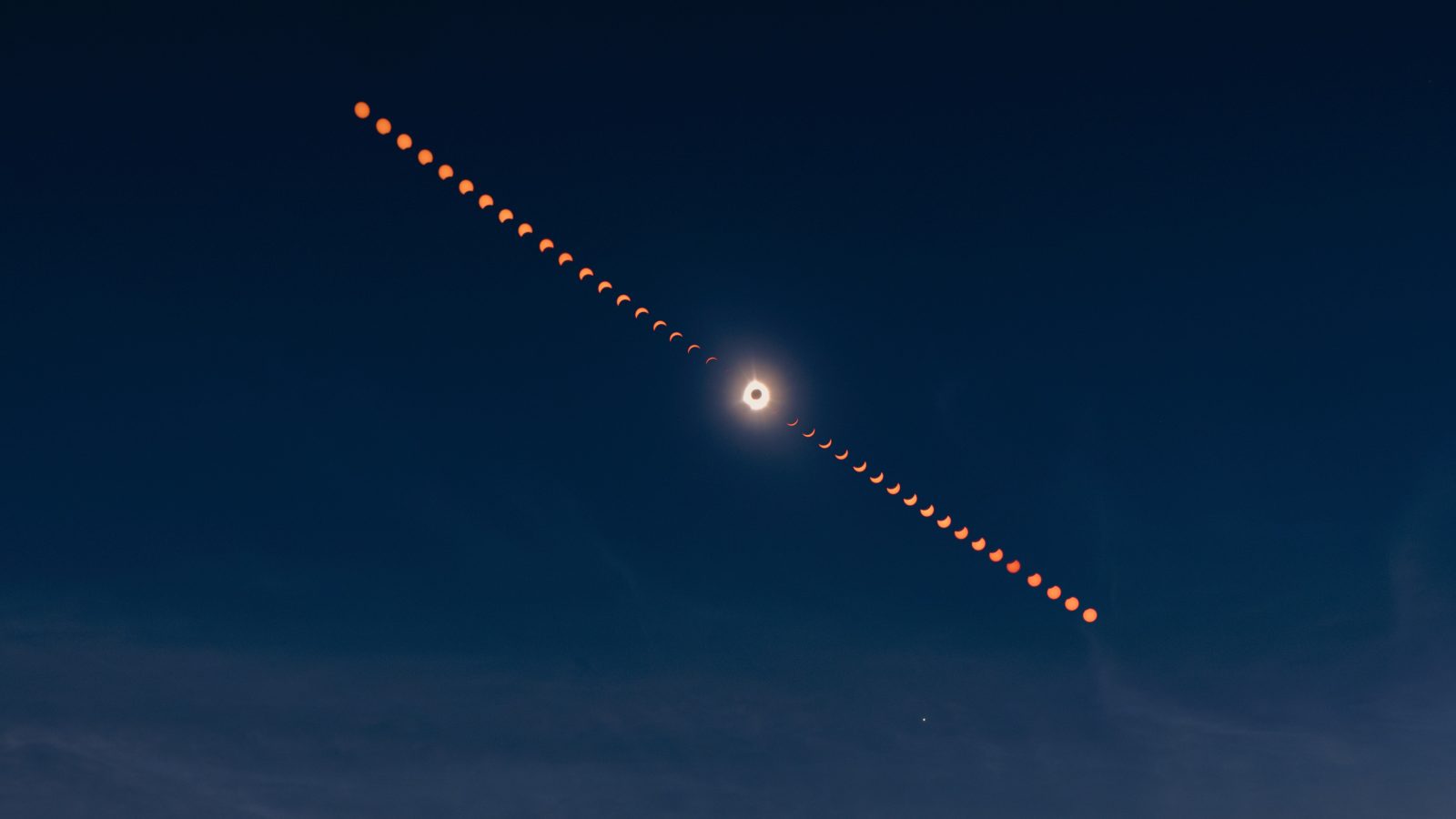
Last Monday North America got to witness the most unique solar event that can ever happen, a total solar eclipse. If you didn’t get to travel to, or be lucky and just live in, the path of totality, you most likely missed out on the fun. So if you are determined to not miss the next one, where do you have to be and when is the next total solar eclipse?
Greenland, Iceland, and Spain: 2026
If you’re looking to make the next total solar eclipse, that will take place over sections of Greenland, Iceland, and Spain in 2026. The only spot to really see this eclipse on land will be the north eastern parts of Greenland, southern Iceland, Northern Spain, and the entire island of La Palma (which I think might be my choice).
The point of maximum totality will be near Iceland and the eclipse will take place on August 12.
Spain and Northern Africa: 2027
The next eclipse after that will be in 2027 and will be over much more land than 2026’s eclipse. On August 2, a total eclipse will cross over North Morocco, parts of Libya, and through Egypt (where peak totality will be). The eclipse will also be in part of Somalia, but I don’t think anyone from the US Department of State would suggest traveling there for the time being.
United States: 2045
Now if you don’t want to or can’t travel abroad for future eclipses, the next eclipse here in the United States won’t come around until 2045. This was what those local news stations meant by “you won’t see another eclipse like this for over 20 years.”
This will be similar to what we saw in 2017 although further south. Sorry Carbondale, Illinois you won’t be seeing yet another total eclipse, you just got spoiled for the last two.
Starting in Northern California, the eclipse will move east and slowly south through Nevada, Utah, Colorado, Oklahoma, Arkansas, Mississippi, Alabama, before engulfing almost the entire state of Florida.
So expect in the next 18 or so years to be blasted with advertisements to plan your Disney World vacations around August 12.
Alaska: 2033
If you can’t wait that long and want to stay in the US, there will be a short total eclipse in Alaska on March 30 about a decade earlier. However, the remoteness of where it is might prove challenging to get to any viewing locations.
The biggest challenge will be finding a city that will be able to house you. Most cities in this region of Alaska are extremely small and not set up to accommodate many outside visitors. However, if there is even a place to stay, you could view the eclipse at peak totality at the northernmost city in the US, Utqiagvik (formally Barrow), Alaska.
Join our Discord Server: Join the community with forums and chatrooms about space!
How do we track solar eclipses?
While it might seem like just a fluke coincidence that solar eclipses take place when they do, researchers can actually predict when one will happen down to the seconds. They are extremely regular, although still rare to see from Earth, events that have been observed for thousands of years.
Actually, there’s technically an eclipse every time the Moon passes between the Sun and Earth. The rare part is how often the Moon’s shadow falls somewhere on Earth’s surface. Because the Moon’s orbit is inclined, the shadows usually fall to the north or south of Earth.
Also, sometimes the Moon is too far to create a total eclipse, resulting in an annular eclipse or “ring of fire” eclipse. However, as the Moon and Earth continue along in their orbits, eventually the shadows lineup to show on Earth’s surface, creating an eclipse.
This is where we gotta mention Saros cycles, a crazy exact number that determine when another similar eclipse will take place. Nine years and five and half days after a lunar eclipse takes place, a solar eclipse will. This continues with inferring that every 18 years, 11 days, and eight hours after one eclipse, the Sun, Moon, and Earth all realign to similar locations and a similar eclipse takes place.
After experiencing April 8th’s eclipse, taking in something so other worldly is also so mathematically understood blew my mind. Personally I’ll be working on going to many many more in my lifetime.
If you missed the last one, don’t worry, hopefully you will have the ability to travel for future total eclipses that come in the near future. Hope to see you in Utqiagvik or La Palma!
FTC: We use income earning auto affiliate links. More.


Comments